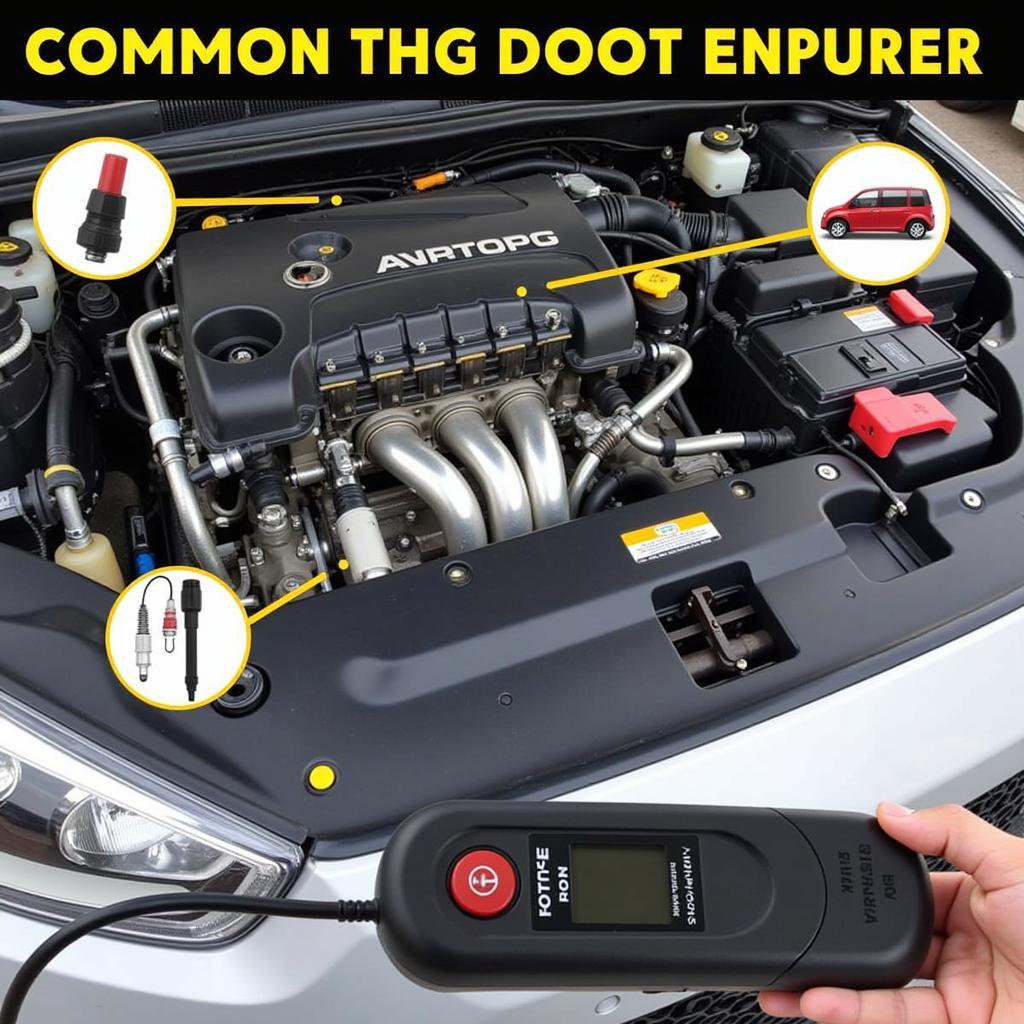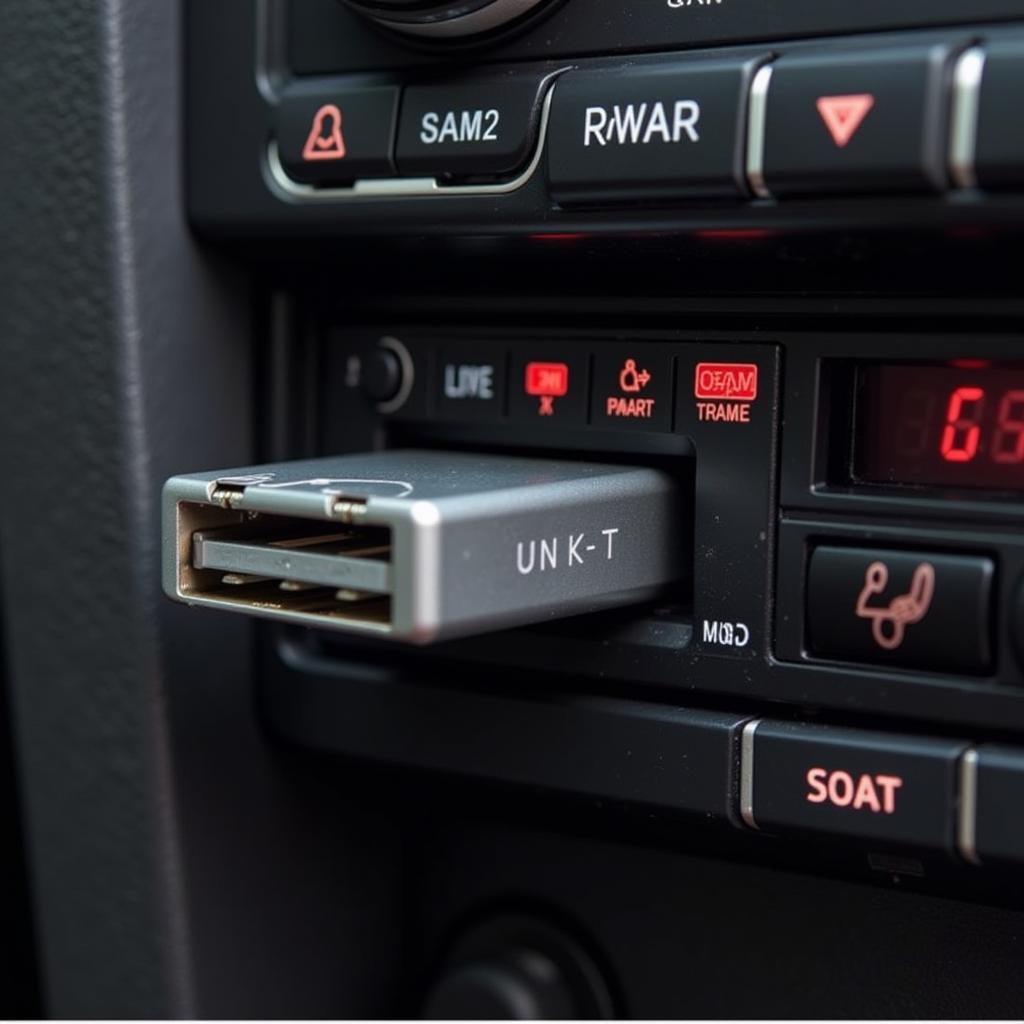Indian cars face unique challenges due to the diverse driving conditions, environmental factors, and the specific types of vehicles commonly used. Whether you’re a car owner, mechanic, or workshop owner, understanding these common issues can help you maintain your car effectively and prevent unexpected breakdowns.
Common Engine Problems
Engine Overheating
Overheating is a frequent problem in Indian cars, particularly during the hot summer months. This can be caused by various factors like a faulty radiator, thermostat, or cooling fan, as well as low coolant levels.
-
Symptoms: The temperature gauge on your dashboard will rise, and you may notice steam or smoke coming from under the hood.
-
Solution: Regularly check your coolant levels and ensure the cooling system is working properly. Replace worn-out components as needed.
“Overheating is a major concern in Indian cars, and it can lead to serious engine damage,” says Mr. Rajesh Kumar, a veteran automotive technician with over 20 years of experience. “Regular maintenance, including checking the coolant and fan, is crucial to prevent it.”
Engine Oil Problems
Engine oil plays a crucial role in lubrication and cooling. Neglecting oil changes or using the wrong type of oil can lead to various engine issues.
-
Symptoms: Excessive engine noise, oil leaks, and reduced performance can be signs of oil-related problems.
-
Solution: Adhere to the recommended oil change intervals in your owner’s manual. Use the correct type and grade of oil for your vehicle.
Fuel System Problems
Indian fuel quality can be variable, leading to fuel-related issues like clogged fuel injectors, dirty fuel filters, and fuel pump problems.
-
Symptoms: Hesitation during acceleration, rough idle, and poor fuel efficiency are common symptoms.
-
Solution: Regularly clean your fuel injectors, replace your fuel filter, and ensure your fuel pump is working correctly.
Transmission Problems
Manual Transmission Issues
Manual transmissions, commonly found in Indian cars, are prone to issues like clutch wear, gear shifting difficulties, and gearbox oil leaks.
-
Symptoms: Slipping clutch, difficulty engaging gears, and grinding noises are indicators of transmission problems.
-
Solution: Regularly check your clutch fluid level, adjust your clutch cable, and replace worn-out components.
Automatic Transmission Problems
Automatic transmissions require regular maintenance and can be affected by issues like transmission fluid leaks, faulty solenoids, and worn-out clutches.
-
Symptoms: Rough shifting, delayed gear engagement, and transmission slipping are common symptoms.
-
Solution: Follow the recommended fluid change schedule, ensure proper fluid levels, and address any leaks or other problems promptly.
Electrical System Problems
Battery Issues
Indian cars often experience battery problems due to extreme weather conditions, frequent starts and stops, and age.
-
Symptoms: Slow cranking, dimming headlights, and electrical accessories not working are all signs of a weak battery.
-
Solution: Replace your battery when necessary, ensure proper connections, and regularly check battery terminals.
Electrical Wiring Problems
Worn-out wiring, loose connections, and corrosion can lead to various electrical malfunctions.
-
Symptoms: Flickering lights, intermittent electrical failures, and faulty sensors can be caused by wiring problems.
-
Solution: Regularly inspect your wiring harness for damage or corrosion, and address any issues promptly.
Suspension and Steering Problems
Worn-Out Suspension Components
Indian roads can be rough, causing wear and tear on suspension components like shock absorbers, struts, and bushings.
-
Symptoms: Uneven tire wear, excessive bouncing, and a noisy ride are signs of worn-out suspension parts.
-
Solution: Inspect your suspension components regularly and replace them as needed.
Steering Problems
Steering problems like power steering fluid leaks, worn-out steering rack, and loose steering components can affect your vehicle’s handling.
-
Symptoms: Difficulty steering, a loose steering wheel, and a noisy steering column can be warning signs.
-
Solution: Check your power steering fluid level, inspect your steering rack and components, and address any issues promptly.
Body and Paint Issues
Rust and Corrosion
India’s humid climate makes rust and corrosion a common problem for car bodies.
-
Symptoms: Rust spots, peeling paint, and holes in the body panels are signs of corrosion.
-
Solution: Regularly wash and wax your car to prevent corrosion. Address any rust spots promptly.
Paint Damage
Scratches, dents, and chips in your car’s paint can be caused by various factors.
-
Symptoms: Visible paint damage can lead to rust and corrosion if not addressed.
-
Solution: Repair paint damage promptly to protect your car’s body.
Conclusion
Maintaining your Indian car requires proactive attention to common issues like engine overheating, transmission problems, electrical malfunctions, and body corrosion. By staying vigilant and addressing problems early, you can ensure a smooth and safe driving experience for years to come.
If you need further assistance, feel free to contact us at AutoTipPro for expert advice and solutions.
Contact us at:
Phone: +1 (641) 206-8880
Office: 500 N St Mary’s St, San Antonio, TX 78205, United States
FAQ
Q: What are the most common Problems In Indian Cars?
A: Some common issues include engine overheating, transmission problems, battery issues, electrical wiring problems, suspension and steering problems, and rust and corrosion.
Q: How can I prevent engine overheating in my Indian car?
A: Regularly check your coolant levels, ensure the cooling system is working properly, and replace worn-out components like the radiator, thermostat, and cooling fan.
Q: What are the signs of a worn-out clutch?
A: You may experience a slipping clutch, difficulty engaging gears, and grinding noises.
Q: What should I do if I notice rust on my car body?
A: Address the rust spots promptly to prevent further damage. Regularly wash and wax your car to prevent corrosion.
Q: How can I prevent electrical problems in my car?
A: Regularly inspect your wiring harness for damage or corrosion, and replace your battery when necessary.
Q: How often should I get my car serviced in India?
A: Adhere to the recommended service intervals in your owner’s manual. In India, it’s generally advisable to service your car every 5,000-10,000 kilometers.






Leave a Reply